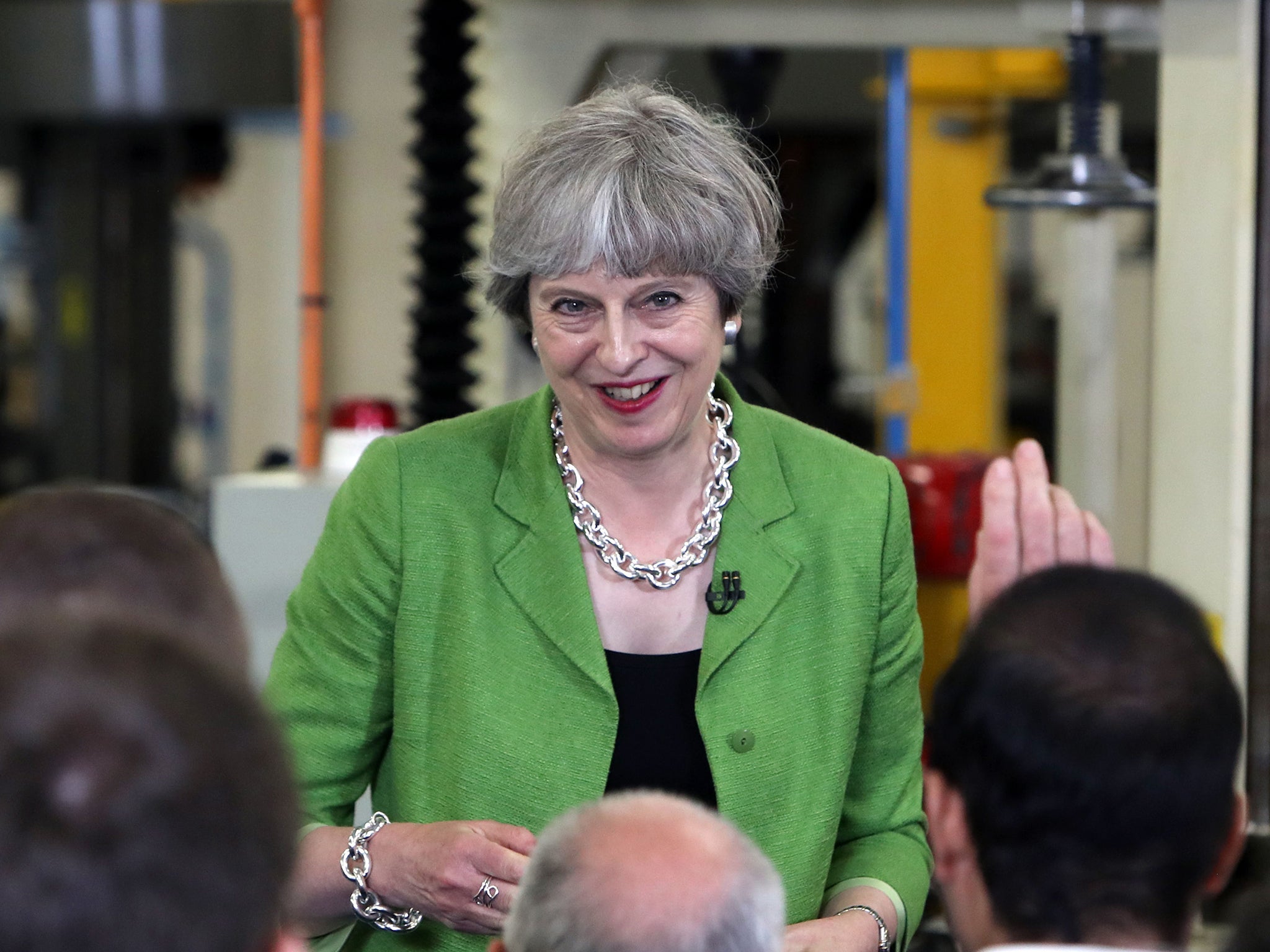The Tory manifesto is a menu without any prices. They’re betting on the fact that voters won’t notice until it’s too late
The Institute for Fiscal Studies has said the Tories have not assessed ‘risks to the quality of public services’ and that their plans for the NHS ‘may well be undeliverable’


This election is very different to the previous eight I have covered in one revealing way: the Conservatives barely want to talk about the economy. The Tories’ calculations of what Labour’s programme would cost were always an election ritual; sometimes there were dodgy dossiers, but sometimes they exposed Labour’s lack of credibility.
There was a brief foray by Philip Hammond, who has now been put back in his box by Theresa May’s advisers and must be wondering whether he will stay there on 9 June. But May’s Tories are now the bland leading the bland. The message is that only May can get a good deal on Brexit to ensure the strong economy needed to fund public services. Cue the inevitable May/Corbyn contrast.
There is a reason why the Tories have eschewed their usual forensic analysis of Labour’s spending plans. It would invite the media to highlight the contrast between the separate costings document published by Labour and the absence of any similar figures in the Tory manifesto – a menu without prices. The Tories have been let off very lightly for this by the media; if Labour had issued its long wish list without saying where the money would come from, Jeremy Corbyn would have been pilloried and it would have become a central theme of the election.
Ministers argue that they do not need to put figures in the Tory manifesto because the Government has published its spending plans. Only up to a point: for example, Hammond is £500m a year short after his Budget U-turn on raising national insurance contributions for the self-employed. The Tories decline to say where taxes would rise or spending cuts would bite. Both things would surely happen. The Institute for Fiscal Studies (IFS) said May’s party had not addressed “risks to the quality of public services and tough choices over spending.” Their NHS plans “may well be undeliverable.”
Why don’t the Tories talk about the deficit, which has been at heart of the last two elections and hasn’t gone away? The IFS has the answer: the Tories’ aim to balance the nation’s books by the mid-2020s would likely require more spending cuts or tax rises even beyond the next five-year parliament.
May deserves credit for at least addressing the huge challenge of social care. But she devalued her welcome U-turn by refusing to reveal the size of the cap on an individual’s lifetime care bills, leaving many people in the dark. Similarly, the Tories decline to say how many pensioners will lose their winter fuel allowance; it might be one million or 10 million. They cannot say when or how their target to reduce net migration below 100,000 would be met; ministers admit privately it probably won’t be.
After getting their fingers burnt on social care, the Tories have now gone back to basics and Brexit. But this is mainly a device to launch personal attacks on Corbyn, who to his credit does not respond in kind. The Tories give very little detail of what Brexit really does mean. “We can’t reveal our negotiating hand,” ministers insist. But the EU27 are being more open; ministers could tell us more if they chose to. Their plans for EU migration will probably be based on work visas but are opaque. When would free movement end? What would take priority – allowing in the EU workers we need or the immigration target? The Tories couldn’t do both.
There is no attempt to spell out what “no deal” on Brexit would mean – tariffs and non-tariff barriers like customs checks for exports to the EU and other countries could have a chilling effect on the UK economy. The Tory manifesto ducks the tricky issue of a continuing role for the European Court of Justice after Brexit. It says nothing about preserving reciprocal health treatment for Brits in the EU and EU citizens here. The Nuffield Trust think tank predicts a £500m bill for the NHS as expats return home for treatment.
It is true that Labour’s manifesto also has its shortcomings. The IFS doubts that the tax rises proposed by the party would enable it to raise £49bn a year as planned, putting the figure at £40bn in the short term and considerably less later. It warns that Labour’s higher taxes would affect a broader segment of the population than the top 5 per cent, as the party claims. Labour also provides little detail on Brexit. It accepts that free movement will end but speaks about “retaining the benefits of the single market”. The EU won’t let us do both.
Although there are doubts about whether Labour’s revenue-raising proposals would fund its ambitious programme, at least the party has offered us a menu with prices and an honest prospectus. As the holes in the Tories’ manifesto are exposed, it is now clear that they haven’t.

Join our commenting forum
Join thought-provoking conversations, follow other Independent readers and see their replies
Comments